Home>diy>Building & Construction>How To Become A Construction Estimator


Building & Construction
How To Become A Construction Estimator
Modified: January 24, 2024
Learn how to become a construction estimator and excel in the field of building construction. Gain the skills and knowledge needed to estimate project costs and manage budgets effectively.
(Many of the links in this article redirect to a specific reviewed product. Your purchase of these products through affiliate links helps to generate commission for Storables.com, at no extra cost. Learn more)
Introduction
Welcome to the world of construction estimation! If you have a passion for building and a keen eye for numbers, then becoming a construction estimator might be the perfect career path for you. Construction estimators play a vital role in the construction industry by providing accurate cost estimates for projects, helping contractors and clients make informed decisions.
As a construction estimator, you will be responsible for analyzing project requirements, evaluating costs, and producing detailed estimates that encompass materials, labor, equipment, and other expenses. Your estimation skills will be crucial in ensuring that projects are completed within budget and that clients receive fair and competitive pricing.
This article will guide you through the steps you need to take to become a successful construction estimator. From education and training to gaining practical experience and mastering estimation software, we will cover all the essential aspects of this rewarding profession.
So, if you’re ready to dive into the world of construction estimation, let’s get started on the path to becoming a construction estimator!
Key Takeaways:
- Education, practical experience, and strong analytical skills are essential for becoming a successful construction estimator. Continuous learning and networking are crucial for career advancement in this dynamic field.
- Developing estimation skills, understanding blueprint reading, and utilizing modern estimation software are key components of excelling as a construction estimator. Building a strong professional network and mastering negotiation and bidding strategies are also vital for success.
Read more: What Is Estimating In Construction
Becoming a Construction Estimator
Becoming a construction estimator requires a combination of education, practical experience, and strong analytical and communication skills. It is essential to have a solid understanding of construction principles and techniques, as well as an ability to interpret project plans and specifications.
Construction estimators can work in various sectors, including residential, commercial, industrial, and civil construction. The demand for skilled estimators is steadily growing, making it an excellent career choice for those interested in the construction industry.
Estimators often work closely with architects, engineers, contractors, and clients to gather project details and develop accurate cost estimates. They must be diligent and detail-oriented, as even small errors in estimating can have significant financial consequences.
In addition to technical expertise, construction estimators must possess strong organizational and communication skills. They must be able to effectively communicate project requirements, cost breakdowns, and any potential risks or challenges to stakeholders. Clear and concise communication is key to building trust and maintaining strong working relationships in the industry.
As a construction estimator, you can work as an employee or as an independent contractor. Many construction companies hire estimators as part of their in-house team, while others may choose to outsource estimation work to freelance estimators or specialized estimating firms.
Whether you decide to work for a company or as a freelancer, the skills and knowledge required to become a construction estimator are universal. By following the steps outlined in the next section, you can set yourself on the path to a successful career in construction estimation.
Steps to Becoming a Construction Estimator
Becoming a construction estimator involves several key steps that will help you build the necessary skills and knowledge for success in this profession. Follow these steps to kickstart your journey as a construction estimator:
- Educational Foundation: Obtain a high school diploma or equivalent. While not mandatory, further education in construction management, quantity surveying, or a related field can provide a strong educational foundation for a career in construction estimation.
- Specialized Certification: Consider earning a certification such as Certified Construction Estimator (CCE), Certified Professional Estimator (CPE), or Certified Estimating Professional (CEP). These certifications validate your expertise and can enhance your credibility in the industry.
- Construction Experience: Gain practical experience in the construction industry by working in entry-level positions such as a construction assistant, project coordinator, or even a construction laborer. This will help you familiarize yourself with construction processes and terminology.
- Estimation Skills: Develop your estimation skills by studying construction cost estimating methodologies and techniques. Learn to analyze project plans, perform quantity takeoffs, and accurately calculate material and labor costs.
- Blueprint Reading: Familiarize yourself with reading and interpreting construction blueprints and specifications. This skill is essential for understanding project requirements and accurately estimating costs.
- Estimation Software: Gain proficiency in using construction estimation software, such as computer-aided estimation (CAE) tools. These software programs streamline the estimation process and allow for more accurate and efficient cost calculations.
- Network Building: Build a professional network in the construction industry by attending industry events, joining construction associations, and connecting with industry professionals. Networking can provide valuable opportunities for job prospects and professional growth.
- Negotiating and Bidding: Learn how to negotiate and bid on construction projects. Develop knowledge of pricing strategies, contract negotiation, and writing competitive bids.
- Continuous Learning: Keep up with industry trends and advancements by staying updated on new construction techniques, materials, and regulations. Participate in continuing education courses and workshops to enhance your skills.
By following these steps and continually honing your skills, you can position yourself as a qualified and sought-after construction estimator.
Education and Training Requirements
While there is no specific educational pathway to becoming a construction estimator, having a strong educational foundation can significantly enhance your career prospects in this field. Here are some education and training requirements to consider:
High School Diploma: A high school diploma or equivalent is generally the minimum educational requirement for entry-level positions in construction estimation. It provides the basic knowledge and skills needed to understand construction principles and terminology.
Construction Management Degree: Pursuing a bachelor’s degree in construction management or a related field can provide a comprehensive understanding of construction practices, project management, and cost estimation techniques. These programs typically include coursework in construction law, project scheduling, building systems, and construction estimating.
Advanced Certifications: While not mandatory, earning specialized certifications can demonstrate your expertise and dedication to the field. The Construction Estimating Institute offers various certifications, such as the Certified Construction Estimator (CCE) and Certified Professional Estimator (CPE). These certifications require passing exams that assess your knowledge and skills in construction estimation.
Estimating Courses and Workshops: Consider enrolling in estimating courses or workshops offered by colleges, universities, or professional organizations. These programs provide hands-on training in estimating practices, cost control, and software utilization. They can be valuable for gaining practical skills and staying updated with industry trends.
On-the-Job Training: Practical experience is vital in developing your construction estimation skills. Many construction companies offer on-the-job training or apprenticeship programs for aspiring estimators. This allows you to learn from experienced professionals and gain real-world experience in estimating projects.
Internships and Co-op Programs: Seek out internships or cooperative education programs that allow you to work alongside professionals in the construction industry. These opportunities expose you to the estimation process and provide valuable hands-on experience.
Remember, education and training are ongoing processes in the construction industry. It is essential to stay updated with the latest technology, industry standards, and regulations. Continuous learning and professional development will help you stay competitive and advance in your career as a construction estimator.
Gaining Construction Experience
Gaining practical construction experience is a crucial step towards becoming a successful construction estimator. It allows you to familiarize yourself with construction processes, terminology, and industry practices. Here are some ways to gain construction experience:
Entry-Level Positions: Consider starting your career in an entry-level position within the construction industry. Positions such as construction assistant, project coordinator, or construction laborer can provide valuable hands-on experience and exposure to various aspects of construction projects.
Internships and Co-op Programs: Many construction companies offer internships or cooperative education programs to students or entry-level individuals. These programs provide the opportunity to work alongside experienced professionals, learn about different construction trades, and gain practical experience in estimating projects.
Volunteer Work: Consider volunteering for construction-related projects or organizations. This allows you to contribute your skills while gaining valuable experience in the field. Non-profit organizations and community projects often have opportunities for construction-related volunteer work.
On-the-Job Training: If you are already employed in the construction industry, take advantage of any on-the-job training opportunities related to estimating. Communicate your interest in learning estimating skills to your supervisor or employer, and seek out opportunities to be involved in estimating tasks or shadow experienced estimators.
Network and Mentoring: Build relationships with professionals in the construction industry. Attend industry events and join professional organizations to connect with experienced estimators who can provide guidance and mentorship. Networking can lead to job opportunities and valuable insights into the industry.
Side Projects: Take on small construction projects on the side, such as home renovation or remodeling projects. This will allow you to apply your construction knowledge and develop practical skills in estimating costs and managing projects.
Continuing Education: Stay updated with industry trends, advancements, and regulations by attending seminars, workshops, and continuing education courses. This demonstrates your commitment to professional development and expands your knowledge base.
Remember, construction experience is an ongoing process, and the more exposure you have to different aspects of construction projects, the better equipped you will be as a construction estimator. Draw upon your construction experience to enhance your understanding of project requirements, materials, labor, and equipment costs, which will ultimately contribute to accurate and detailed cost estimates.
Read more: How To Estimate Construction Costs
Developing Estimation Skills
Developing strong estimation skills is essential for becoming a successful construction estimator. These skills allow you to accurately assess project costs, analyze data, and provide reliable estimates to clients and stakeholders. Here are some key steps to develop your estimation skills:
- Study Estimation Methodologies: Familiarize yourself with different estimation methodologies and techniques used in the construction industry. Learn about approaches such as unit cost estimating, parametric estimating, and bottom-up estimating. This knowledge will help you understand the various factors that influence project costs and how to calculate them.
- Perform Quantity Takeoffs: Quantity takeoffs involve determining the quantities of materials required for a project. Practice performing quantity takeoffs by translating project plans and specifications into measurements and quantities. This skill is crucial for accurately estimating the material costs involved in a construction project.
- Understand Labor Costs: Labor costs play a significant role in estimating project expenses. Gain an understanding of construction labor rates, productivity levels, and the time required to complete specific tasks. This knowledge will enable you to estimate labor costs more accurately.
- Account for Equipment and Tools: Equipment and tool costs are essential components of construction estimates. Familiarize yourself with various construction equipment and their associated costs. Understand how to factor in the required tools and equipment for a project when calculating estimates.
- Consider Indirect Costs: Remember to include indirect costs such as permits, insurance, overhead expenses, and profit margins when developing estimates. Understanding how to account for these costs ensures that your estimates are comprehensive and accurate.
- Research Material Costs: Stay updated on current material prices by researching market trends and supplier rates. Familiarize yourself with the costs of various construction materials and how they fluctuate over time. This information will allow you to provide more accurate estimates.
- Document and Analyze Historical Data: Analyze past projects to understand how actual costs compared to estimated costs. By studying historical data, you can identify trends, learn from any discrepancies, and refine your estimation techniques for future projects.
- Stay Updated with Industry Standards: Construction estimating practices and standards evolve over time. Stay informed about industry advancements and changes in best practices. This includes understanding new construction techniques, materials, and technology that may impact project costs.
- Seek Feedback and Learn from Experience: Solicit feedback from experienced estimators or colleagues on your estimation work. Take note of their suggestions and areas for improvement. Learning from the experience of others can help you fine-tune your estimation skills.
Remember, developing estimation skills is an ongoing process that requires continuous learning and practice. As you gain more experience and refine your techniques, your estimates will become more accurate and reliable.
Tip: Gain experience in the construction industry, develop strong math and analytical skills, and consider obtaining a degree in construction management or a related field to become a construction estimator.
Understanding Blueprint Reading
Blueprint reading is an essential skill for construction estimators as it allows them to interpret project plans and specifications accurately. Understanding blueprints enables estimators to visualize the project, identify key components, and determine the quantities and measurements required for estimation. Here are some key points to understand when it comes to blueprint reading:
Basic Symbols and Abbreviations: Familiarize yourself with the symbols and abbreviations commonly used in construction blueprints. These include symbols for walls, windows, doors, electrical and plumbing fixtures, and various construction materials. Understanding these symbols will help you decipher the components and layout of the project.
Scale and Measurements: Blueprints typically include a scale that represents the actual dimensions of the project. Learn how to read the scale and understand how measurements are depicted on the blueprint. This will enable you to accurately determine lengths, widths, and other dimensions necessary for estimation.
Sections and Elevations: Blueprints often include sectional views and elevations that provide a three-dimensional representation of the project. These views allow estimators to gain a deeper understanding of the project’s structure and visualize the various components from different angles.
Plan Views: Plan views represent the project from a top-down perspective. They show the layout of rooms, walls, doors, and other features. By studying plan views, estimators can identify key areas and accurately estimate quantities of materials required for construction.
Notes and Specifications: Blueprints often include notes and specifications that provide additional information about the project. These may include instructions, materials to be used, or specific construction methods to follow. Pay close attention to these notes as they may impact the estimation process.
Structural and MEP Drawings: Blueprints may include separate sheets for structural plans and mechanical, electrical, and plumbing (MEP) systems. Understanding these drawings is crucial as they contain critical information related to the project’s structural integrity and utility systems. Incorporate these details into your estimations to ensure accuracy.
Software and Digital Blueprints: With advancements in technology, many blueprints are now in digital format, and various software tools are available for blueprint reading. Familiarize yourself with software applications specifically designed for reading and analyzing digital blueprints. These tools can enhance your efficiency and accuracy in interpreting project plans.
Remember, practice makes perfect when it comes to blueprint reading. The more exposure you have to blueprints and the different types of construction projects, the better you will become at interpreting and understanding them. Take the time to study and analyze blueprints, and don’t hesitate to seek clarifications from architects or engineers when needed.
Utilizing Estimation Software
In today’s digital age, estimation software plays a significant role in the construction industry. These software tools streamline the estimation process, improve accuracy, and enhance efficiency. Here are some key points to consider when utilizing estimation software:
Research and Choose the Right Software: There are various estimation software options available in the market. Research different software tools and choose the one that best suits your needs and the requirements of your projects. Look for features such as cost databases, quantity takeoff capabilities, integration with other software, and user-friendly interfaces.
Learn the Software: Once you have selected estimation software, invest time in learning its features and functionalities. Attend training sessions, read user manuals, and take advantage of online tutorials. Understanding how the software works will enable you to harness its full potential and maximize efficiency.
Build a Cost Database: Estimation software often allows you to create and maintain a cost database. This database can include standard costs for materials, labor rates, equipment rentals, and subcontractor pricing. Regularly update the cost database to reflect current market rates and trends.
Perform Quantity Takeoffs: Estimation software often includes tools for performing quantity takeoffs digitally. Use these tools to measure lengths, areas, and volumes directly on the blueprint or digital plan. This functionality eliminates the need for manual calculations, reducing the margin for error and saving time.
Analyze Historical Data: Most estimation software allows you to store and access historical data from previous projects. Analyze this data to identify patterns, trends, and cost variances. By leveraging historical data, you can improve the accuracy of your estimates and make more informed decisions.
Integrate with Other Software: Estimation software often integrates with other project management software, accounting systems, or collaboration tools. Take advantage of these integrations to streamline processes, facilitate data sharing, and improve project coordination and communication.
Collaborate and Share Data: Estimation software enables collaboration among team members by allowing multiple users to access and modify estimates simultaneously. This promotes real-time collaboration, improves communication, and ensures everyone involved is working with the most up-to-date information.
Regular Updates and Maintenance: Stay updated with the latest versions and updates of your estimation software. Software developers often release updates to enhance functionality, fix bugs, or introduce new features. Regularly update and maintain your software to ensure optimal performance.
By utilizing estimation software effectively, construction estimators can streamline their workflow, save time, improve accuracy, and provide more reliable estimates. Embrace the advantages of technology and utilize software tools to elevate your estimation capabilities in the construction industry.
Building a Network in the Construction Industry
Building a strong professional network is invaluable in the construction industry. Networking allows you to establish connections, gain industry insights, and open doors to new opportunities. Here are some key steps to build a network in the construction industry:
Attend Industry Events: Participate in industry conferences, trade shows, seminars, and workshops. These events provide opportunities to meet professionals from different sectors of the construction industry, including contractors, architects, engineers, and fellow estimators. Engage in conversations, exchange business cards, and follow up with new contacts to nurture relationships.
Join Professional Organizations: Join construction-related professional organizations and associations. These groups provide platforms to network with industry professionals, stay updated with industry trends, and access valuable resources. Active involvement in these organizations can enhance your visibility and help establish credibility within the construction community.
Utilize Social Media: Leverage social media platforms such as LinkedIn, Twitter, and Facebook to connect with construction professionals. Join industry-related groups and share valuable insights and articles. Engage in conversations, participate in discussions, and showcase your expertise to expand your network.
Attend Local Networking Events: Search for local construction-focused networking events in your area. These events may include contractor association meetings, meetups, or chamber of commerce gatherings. Attend these events to meet local professionals, subcontractors, and potential clients.
Seek Mentorship: Identify experienced estimators or professionals in the construction industry who can mentor and guide you. Look for opportunities to connect with them through industry events, mutual connections, or online platforms. A mentor can provide valuable advice, share insights, and help you navigate your career path.
Offer to Assist: Reach out to experienced estimators or professionals and offer your assistance on projects or tasks. This not only showcases your willingness to learn and contribute but also allows you to learn from their expertise. By being proactive and offering help, you can build stronger relationships and demonstrate your commitment to the industry.
Follow Up and Stay in Touch: After meeting new contacts or attending networking events, follow up with personalized emails or messages. Stay in touch, share industry-related articles or resources, and continue to nurture relationships. Regularly connect with your network to maintain those connections and build long-lasting relationships.
Provide Value to Others: Offer your knowledge and expertise to others in the construction industry. Share insights, provide tips, and contribute to industry forums or blogs. By providing value to others, you establish yourself as a resource and build credibility within the industry.
Remember, networking is not just about collecting business cards; it’s about building genuine, mutually beneficial relationships. Foster connections, be authentic, and continually seek opportunities to expand and strengthen your network. A robust professional network can lead to new job opportunities, collaborations, and a wealth of industry knowledge.
Read more: How To Do An Estimate For Construction
Negotiating and Bidding on Construction Projects
Negotiating and bidding on construction projects is a critical aspect of the construction estimation process. It involves understanding client requirements, preparing competitive bids, and effectively negotiating to secure projects. Here are some key points to consider when it comes to negotiating and bidding:
Understand Client Needs: Begin by thoroughly understanding the client’s project requirements. This includes studying the project plans, specifications, and any additional documents provided. Pay attention to the client’s objectives, budget constraints, and aesthetic preferences.
Accurate Cost Estimation: Develop accurate and detailed cost estimates based on the project requirements. Take into account all direct and indirect costs, including materials, labor, equipment, permits, insurance, overhead, and profit margins. Ensure your estimates are competitive yet realistic to avoid overpricing or underpricing.
Prepare a Compelling Bid: Craft a well-organized and professional bid proposal that showcases your expertise and highlights how your capabilities align with the client’s needs. Include a breakdown of costs, project timeline, and any value-added services you can offer. Emphasize your unique selling points and explain why your bid is the most suitable choice for the project.
Research Competitors: Conduct research on your competitors to gain insights into their bidding strategies, strengths, and weaknesses. This knowledge can help you position your bid more effectively and differentiate yourself from the competition. Understand the going rates of similar projects in the area to ensure your pricing is competitive.
Clearly Define Scope:
Ensure that your bid clearly defines the scope of work and any limitations. Clearly communicate the services and deliverables that are included in your bid. This helps in managing client expectations and avoiding misunderstandings during the negotiation process.
Effective Communication: The negotiation process requires effective communication skills. Clearly articulate the value you bring to the project, listen to the client’s concerns, and be open to discussing and addressing any potential issues. Maintain a professional and respectful tone throughout the negotiation process.
Flexibility and Compromises: Negotiation often involves some degree of compromise. Be willing to negotiate on certain aspects of the project, such as timelines, pricing, or scope, to find a mutually acceptable agreement. Understand the limits within which you can make concessions without compromising the viability of the project.
Professionalism and Timeliness: Respond to bid requests promptly and professionally. Submit your bid within the specified timeframe, ensuring that all required documents and information are included. Presentation matters, so provide a well-organized and visually appealing bid that demonstrates your professionalism and attention to detail.
Follow-Up: After submitting a bid, follow up with the client to ensure they have received and reviewed your proposal. This demonstrates your interest and commitment to the project. Inquire about the timeline for the selection process and ask if there are any clarifications or additional information needed.
Learn from Past Bids: Review and analyze past bids to identify areas for improvement. Assess which bids were successful and why, as well as those that were not selected. Use this feedback to refine your bidding strategy, adjust pricing, or enhance your proposal presentation for future opportunities.
Remember that negotiating and bidding on construction projects require a balance between competitiveness and profitability. Strive to secure projects that align with your capabilities and provide a fair return on investment. Continuously improve your negotiation and bidding skills to increase your chances of winning contracts and establishing successful partnerships in the construction industry.
Advancing Your Career as a Construction Estimator
As a construction estimator, there are several ways to advance your career and position yourself as a sought-after professional in the industry. Here are some key steps to consider:
Continuing Education: Stay updated with the latest advancements in construction estimation by pursuing continuing education courses and certifications. These programs enhance your skills, expand your knowledge base, and demonstrate your commitment to professional growth. Consider specialized courses in areas such as advanced estimation techniques, value engineering, or construction software training.
Master Estimation Software: Become proficient in using the latest estimation software tools. Stay current with updates and new features introduced in the software you utilize. Having advanced software skills not only improves efficiency in the estimation process but also makes you a valuable asset to employers and clients.
Gain Specialized Knowledge: Specialize in a particular sector or niche within the construction industry. By developing expertise in areas such as residential, commercial, industrial, or civil construction, you can differentiate yourself from generalist estimators. Deepen your understanding of specific construction techniques, materials, and regulations related to your chosen specialization.
Build a Portfolio: Maintain a portfolio of successful projects and notable accomplishments. Include detailed information about the projects you have estimated, highlighting your contributions and the challenges you overcame. Showcase your ability to deliver accurate estimates and manage projects within budget constraints.
Network and Collaborate: Continue building and nurturing your professional network. Attend industry events, join construction associations, and actively participate in online communities. Collaborate with other professionals on projects or research to expand your knowledge and broaden your connections in the industry.
Seek Leadership Opportunities: Look for opportunities to take on leadership roles within your organization or professional associations. By stepping up as a team leader, mentor, or committee member, you can demonstrate your ability to manage and guide others. Leadership positions help establish you as a respected professional and provide valuable experience in managing teams and projects.
Stay Informed: Stay up to date with industry trends, emerging technologies, and best practices. Subscribe to industry publications, read relevant books and articles, and follow influential construction professionals and organizations on social media. Remaining informed allows you to adapt to industry changes and stay ahead of the competition.
Continuously Improve Your Skills: Invest time in improving your estimation skills and knowledge. Seek feedback from clients, colleagues, and mentors to identify areas for improvement. Continuously enhancing your skills and adapting to industry changes will make you a valuable asset in the construction industry.
Consider Professional Certifications: Investigate professional certifications specific to construction estimation, such as Certified Construction Estimator (CCE) or Certified Professional Estimator (CPE). These certifications provide a recognized credential and demonstrate your expertise to employers and clients.
Explore Entrepreneurial Opportunities: Consider starting your own estimation consulting firm or freelancing as an independent estimator. This allows you to have greater control over your projects, clients, and career trajectory. However, be prepared for the challenges of running your own business and ensure you have a solid understanding of the business side of construction estimation.
Advancing your career as a construction estimator requires a combination of continuous learning, networking, specialized knowledge, and a commitment to excellence. By following these steps and consistently seeking growth opportunities, you can position yourself as a respected and successful professional in the construction industry.
Conclusion
Congratulations! You have reached the end of our comprehensive guide on becoming a construction estimator. We have covered various aspects of this profession, from education and training requirements to developing skill sets and building a successful career. As a construction estimator, you play a crucial role in helping construction projects come to life by providing accurate cost estimates and ensuring projects stay within budget.
Throughout this guide, we have emphasized the importance of continuous learning, networking, and staying updated with industry advancements. Construction estimation is a dynamic field, and keeping up with emerging technologies, materials, and industry practices is essential for success. Additionally, building a strong professional network can open doors to new opportunities, enhance collaborations, and provide a support system to rely on.
Remember, the path to becoming a construction estimator involves a combination of education, hands-on experience, and developing specific skills such as blueprint reading, estimation techniques, and the utilization of modern software tools. Seeking out opportunities to gain practical experience, either through internships, volunteer work, or entry-level positions in the construction industry, will greatly contribute to your overall understanding of construction processes.
As you progress in your career, continuous improvement and personal development will be key. Stay up to date with industry trends, pursue additional certifications or specializations, and seek out leadership opportunities to showcase your expertise and advance your career. Building a portfolio of successful projects and maintaining a professional network will also position you as a trusted and valued construction estimator.
Remember, becoming a construction estimator is a journey that requires dedication, perseverance, and a commitment to excellence. As you embark on this exciting career path, continue to refine your skills, seek growth opportunities, and stay passionate about the construction industry. Your expertise as a construction estimator will contribute to the successful completion of projects, the satisfaction of clients, and the overall growth of the construction industry.
Best of luck on your journey to becoming a skilled and respected construction estimator!
Frequently Asked Questions about How To Become A Construction Estimator
Was this page helpful?
At Storables.com, we guarantee accurate and reliable information. Our content, validated by Expert Board Contributors, is crafted following stringent Editorial Policies. We're committed to providing you with well-researched, expert-backed insights for all your informational needs.
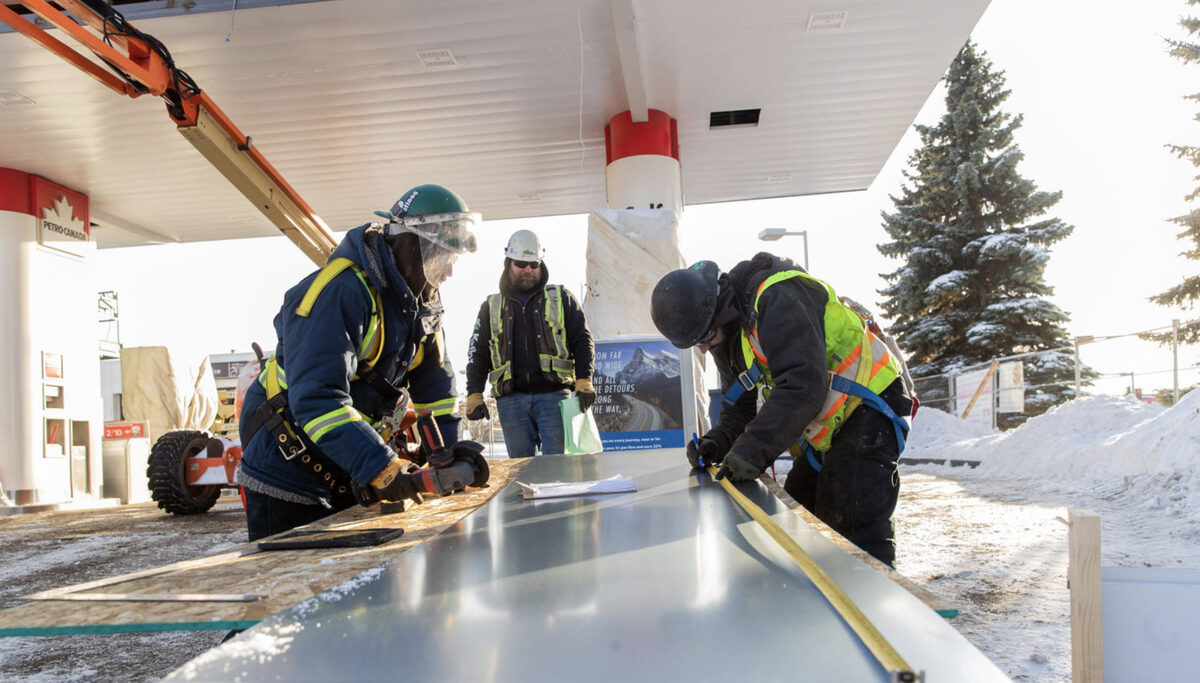
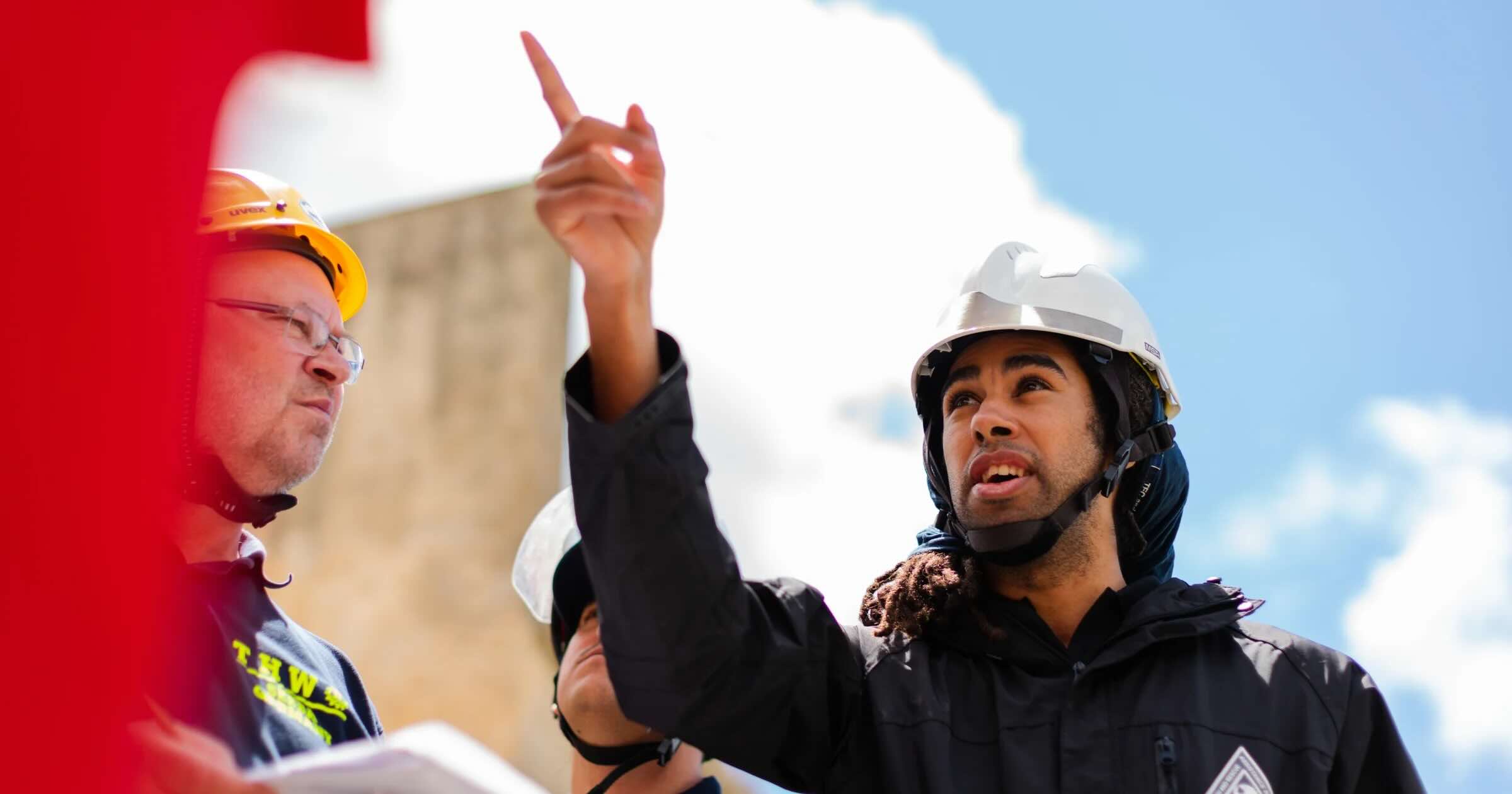
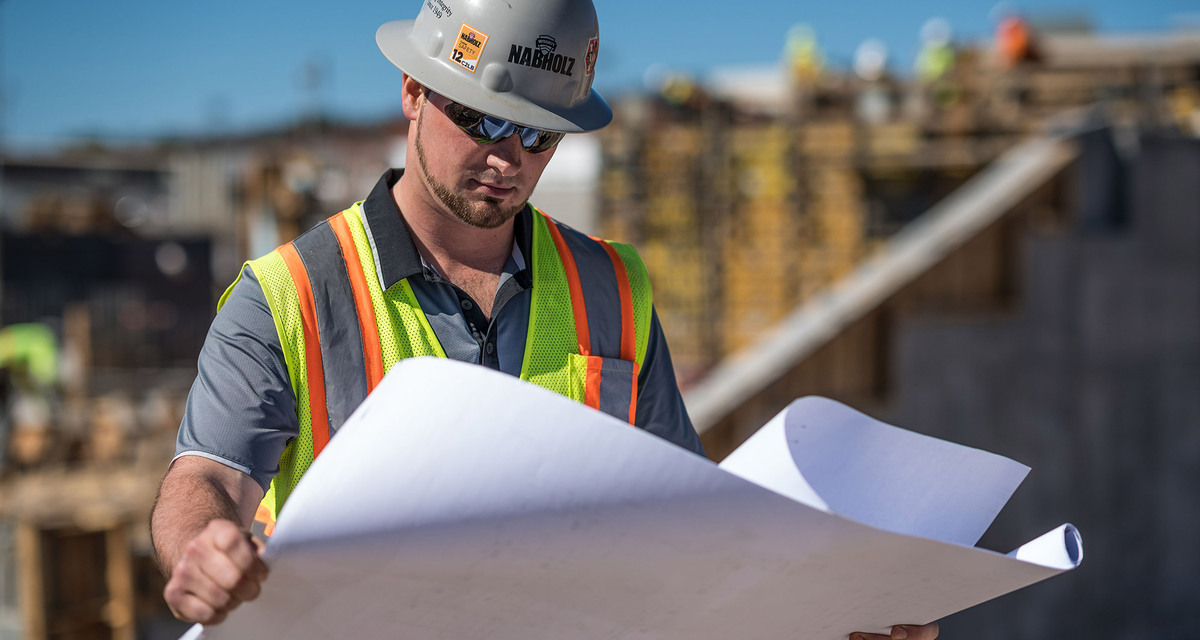

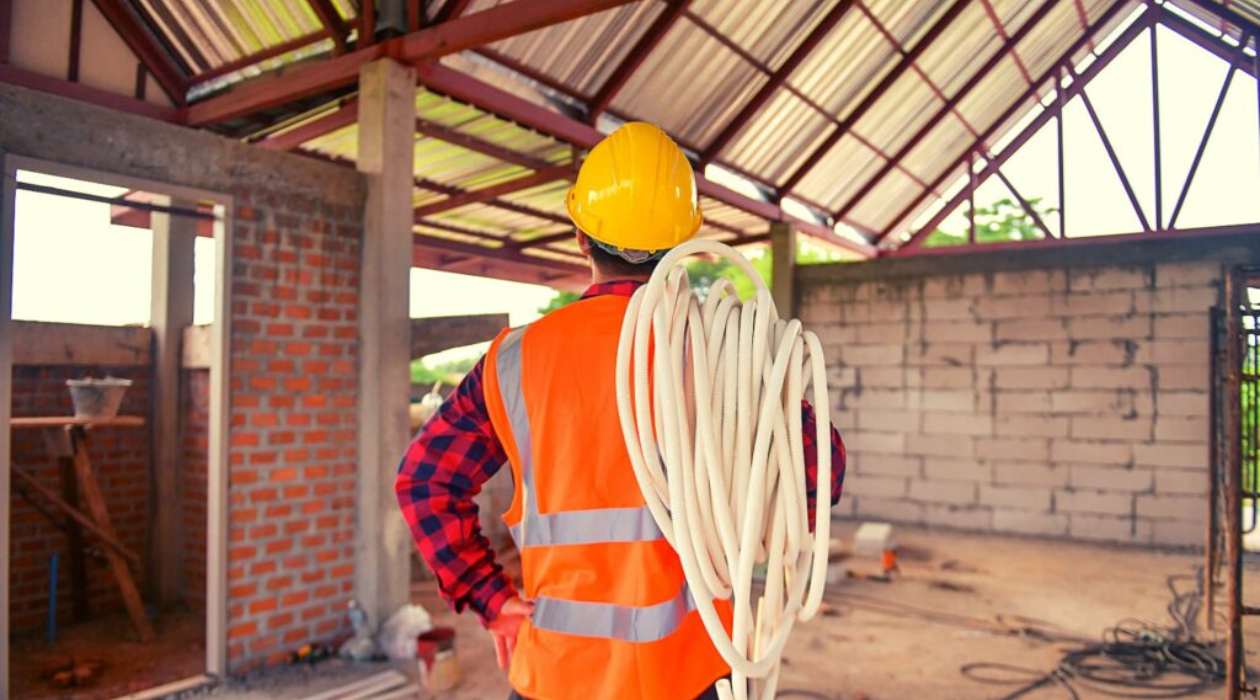
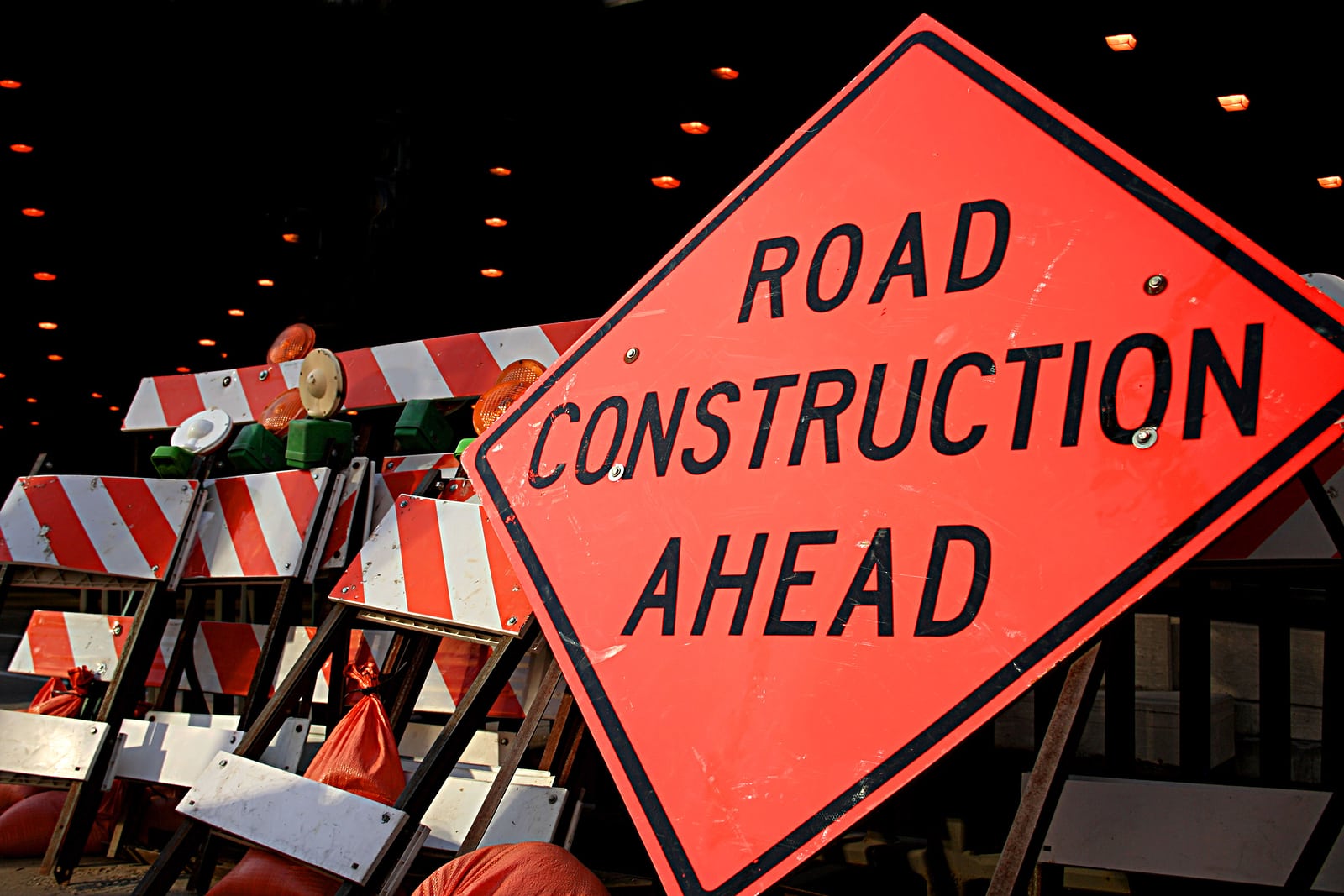






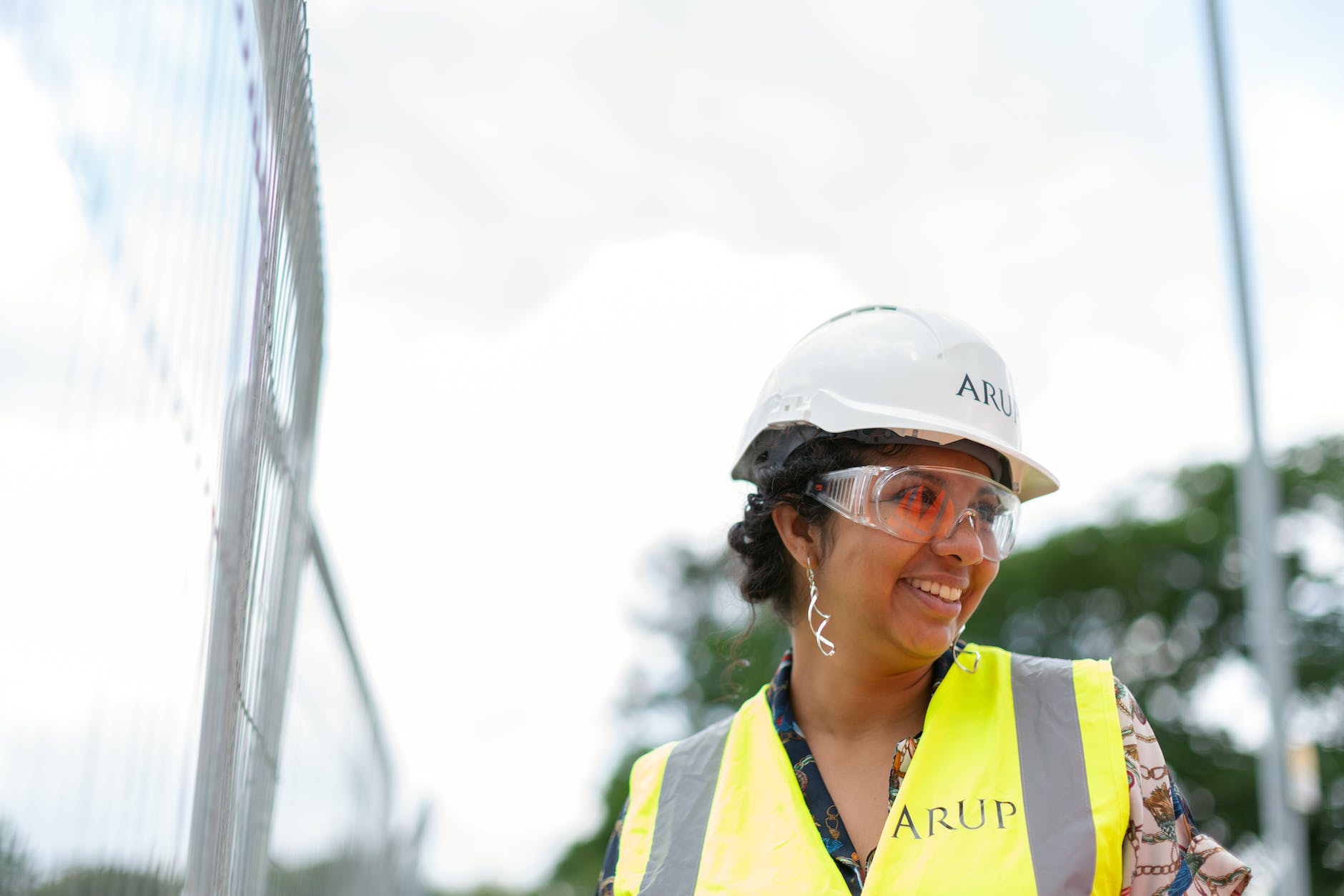

0 thoughts on “How To Become A Construction Estimator”